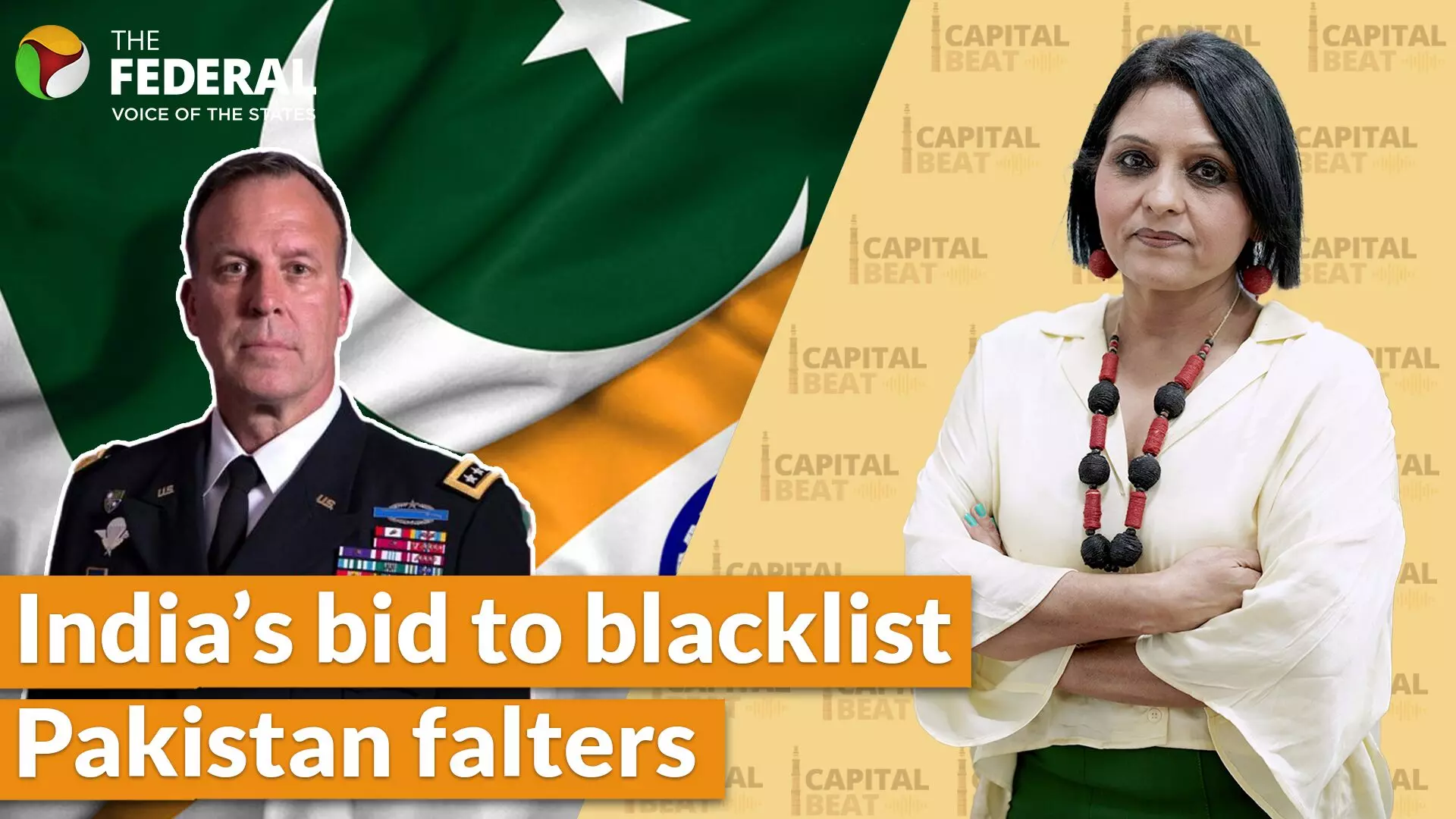
The discussion explored whether India has reached a dead end in its foreign policy ambitions, with the panellists raising hard-hitting questions about strategy, perception, and domestic priorities shaping India's global standing.
Has India’s foreign policy hit a diplomatic wall?
India’s global diplomatic push to isolate Islamabad hits a major snag as a US General calls Pakistan ‘phenomenal’ counter-terror partner

In this episode of Capital Beat, panellists Sanjay Kapoor, Aftab Kamal Pasha, and Pushparaj Deshpande came together to analyse a sharp setback in India’s diplomatic efforts. The conversation centred around a powerful statement by General Michael Kurilla, head of the US Central Command, who described Pakistan as a “phenomenal partner” in counterterrorism.
This comes just as Indian multi-party parliamentary delegations had wrapped up their diplomatic campaign to isolate Pakistan on the global stage.
The discussion, moderated by Neelu Vyas, explored whether India has reached a dead end in its foreign policy ambitions, with the panellists raising hard-hitting questions about strategy, perception, and domestic priorities shaping India's global standing.
America's twin-pillar strategy
Dr. Aftab Kamal Pasha opened the conversation by placing the US endorsement of Pakistan within a broader historical and strategic context. He noted that America has a long track record of creating and then engaging with regions plagued by terrorism - from Afghanistan to Iraq and Libya.
Also Read: Need to maintain strong military ties with Pak: US General
“The Americans have this unique privilege of creating fertile ground for terrorism, then launching wars against it,” Pasha remarked.
He warned that Pakistan’s re-emergence as a strategic partner to the US is part of a larger twin-pillar strategy to counter Russia and China. By elevating Pakistan’s role, especially via the invitation extended to Pakistan Army Chief General Asim Munir to attend a military parade in the US, Washington signals a recalibration of its regional priorities - at India’s expense.
India caught off guard
Sanjay Kapoor termed this development a “diplomatic setback” and pointed out that India had miscalculated the depth of the US-Pakistan relationship. While India assumed that shared concerns about terrorism would push Washington closer to New Delhi, reality indicates otherwise.
“With the return of Trumpism and the US military shifting to the right, there's a revival of the older, more transactional relationship with Pakistan,” Kapoor explained.
Also Read: US calls Pak 'phenomenal partner': Is it not setback for India? Congress asks PM
He emphasised that India’s failure to anticipate such a shift reflects a broader misunderstanding of international alliances.
He added that members of India's recent diplomatic delegations were reportedly confronted with tough questions in foreign capitals - particularly on the Indus Water Treaty and the lack of conclusive evidence linking Pakistan to recent terror attacks.
'Global image in sharp decline'
Pushparaj Deshpande brought a political perspective to the table, asserting that India’s current global image is in sharp decline. He compared today’s diplomatic isolation to the post-2006 era, when the UPA government had successfully rallied global opinion against Pakistan following the Mumbai attacks.
Also Read: G7 meet a big chance to mend ties with Canada but India must adjust to Khalistan reality
“In 2006, India was seen as a democratic counter to China. Today, we’re being equated with Pakistan - a state one-tenth our economic size. That’s a stunning reversal,” Deshpande said.
He squarely blamed the Modi government’s foreign policy choices and the aggressive promotion of domestic ideological agendas for this downturn.
Domestic policy undermining diplomacy
Dr Pasha linked India’s international challenges to its domestic political environment. He referenced former Prime Minister Vajpayee’s advice to Modi that internal conduct must not embarrass India abroad. According to Pasha, policies perceived as exclusionary or anti-minority are damaging India’s soft power and credibility.
Also Read: Jaishankar welcomes European Parliament members' backing for stronger India-EU ties
He warned that the use of Hindutva-driven narratives on foreign soil - particularly through the diaspora - has alienated liberal democracies. Moreover, Pasha highlighted how Gulf nations that once honoured India with civilian awards continue to support Pakistan strategically, undercutting the perception of regional solidarity.
'India's diplomatic isolation'
Kapoor argued for an urgent reassessment of India’s foreign policy.
“A crisis like Pulwama should have been a litmus test for our global partnerships,” he said, stressing that India's foreign minister must take responsibility for recent missteps.
He added that internal party feedback from across the political spectrum, including Congress and the Left, may help bring objectivity back into foreign policy formulation.
Also Read: Bangladesh wanted good ties with India, but 'something always went wrong': Yunus
Deshpande echoed this sentiment, noting that Prime Minister Modi’s engagement with only right-wing political groups in other countries has backfired.
“There is a direct link between BJP’s ideological positioning and India’s current diplomatic isolation,” he warned, adding that even traditional allies like Russia and China now appear closer to Pakistan.
'Restore secularism as guiding principle'
Despite the grim assessment, Deshpande and Pasha agreed that all is not lost.
Deshpande suggested the INDIA bloc has an opportunity to present an alternative, more balanced foreign policy framework.
Also Read: 'If India attacks Pak, Bangladesh should...' : Yunus' aide issues warning
Pasha emphasised that India still holds significant trade leverage and retains goodwill across the Global South.
“But to reclaim our position, we must correct our domestic policies and restore secularism as a guiding principle,” he said.
In closing, the panel agreed that without introspection and realignment, India risks further alienation on the global stage.
(The content above has been generated using a fine-tuned AI model. To ensure accuracy, quality, and editorial integrity, we employ a Human-In-The-Loop (HITL) process. While AI assists in creating the initial draft, our experienced editorial team carefully reviews, edits, and refines the content before publication. At The Federal, we combine the efficiency of AI with the expertise of human editors to deliver reliable and insightful journalism.)

